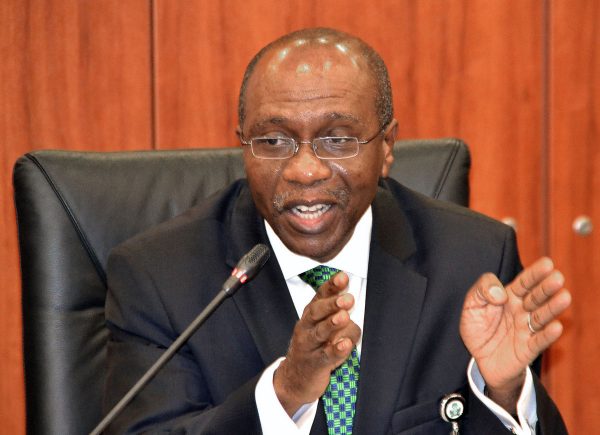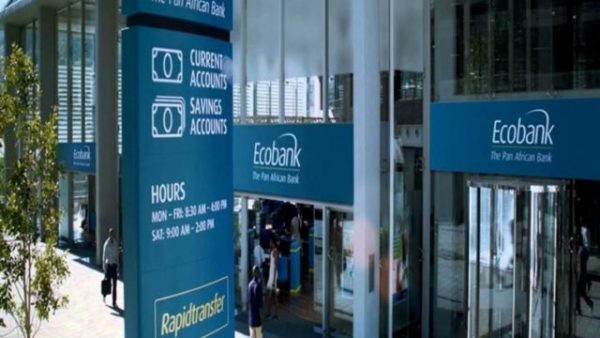CBN to Undertake Spot Checks on Bank Branches to Ensure FX Liquidity

• ABCON rejects directive, insists on rate review
In furtherance of its objective to ensure that banks meet the foreign exchange (FX) demand of eligible travellers, the Central Bank of Nigeria (CBN) will from this week and periodically undertake spot checks on bank branches.
The move is to ensure that the financial institutions are selling FX over-the-counter to their eligible customers and non-customers.
The Acting Director of Corporate Communications, CBN, Mr Isaac Okorafor, disclosed this in a chat with media source yesterday.
The naira depreciated to a nine-month low of N366 to a dollar on the parallel market last week due to artificial scarcity in the system.
To this end, Okorafor explained that the Bank decided to take this measure because its investigation showed that several banks were intentionally not selling FX to travellers on demand and thereby creating unnecessary bottlenecks.
“Therefore, to stop the practice, the CBN will from this week and periodically undertake unannounced spot checks to ensure compliance.
“Any bank or Bureaux De Change (BDC) that is found making any effort to frustrate the stability achieved in the FX market would be dealt with seriously.
“The CBN officials, including the Governor, would be going on this spot checks from Monday, to ensure that people are doing the right thing.
“We are determined, with our reserves to ensure that few greedy individuals don’t mess up the system,” he explained.
Okorafor said the CBN observed that some BDCs were shying away from trading in FX, thereby creating artificial scarcity and putting pressure on the exchange rate.
He pointed out that it was for this reason that the CBN in a statement released on Saturday warned that BDCs must access the greenback at least thrice weekly, saying any BDC that fails to access the FX window at least three times weekly shall have its licence revoked.
Okorafor also warned that the “CBN is prepared to licence new BDCs that are ready to deal in FX.”
He also assured that “the CBN is liquid and stands ready to defend the naira. So, any speculator should be prepared to make a loss.”
The CBN had in a statement released at the weekend mandated all Deposit Money Banks (DMBs) to buy and sell FX to travellers (both customers and non-customers) upon presentation of relevant, valid travel documents such as visa and ticket over-the-counter.
It also stated that all travellers shall be attended to immediately at banks’ counters, adding that banks would be sanctioned for any contravention.
In addition, it stated that all BDCs shall henceforth access forex from the CBN on Mondays, Wednesdays and Fridays.
“It is compulsory that all BDCs access forex at least three times weekly. Any BDC that fails to access the forex window at least three times weekly shall have its licence reviewed by the CBN. Compliance is compulsory,” the statement added.
Meanwhile, the CBN has stressed the need for increased collaboration between banks and financial technology (fintech) companies to address the incidence of electronic banking fraud in the country.
The Deputy Governor, Operations, CBN, Mr. Adebayo Adelabu said this in a keynote address he delivered at the Electronic Payments Incentive Scheme Efficiency Award that took place in Lagos at the weekend.
Adelabu confirmed the recent allegation of financial fraud in one of the payment services companies. But Adelabu who did not mention the name of the firm said the magnitude of the fraud reported in the media was not correct.
The management of eTranzact, a mobile banking and payment services company last week announced a fresh management change over an allegation of N11 billion fraud perpetrated through its channels.
Continuing, Adelabu said reports available to the CBN showed that a lot of the operators were resisting the shared services that were introduced by the central bank and the Bankers’ Committee.
“I learnt that there have been lots of resistance from operators in the shared services that were introduced by the Bankers’ Committee.
“There are lots of benefits that can accrue to us as business people if we embrace shared services, especially around technology. The result would be beneficial to all and sundry.
“Of late, the number of the rumour of successful frauds in a couple of banks and fintechs. I will say that it is true, but maybe not the magnitude of the rumour being spread.
“But we can still prevent fraud by ensuring that our systems are well protected,” he said.
Adelabu stressed that the controls, recommendations and regulations from the CBN and other regulators should not just be seen as cosmetics, saying that some banks and fintechs are of the habit of just implementing the minimum requirements of such policies, just to satisfy the desire of the regulators.
“This is very wrong. We should look at the real impact on our business and the effects on our customers. More importantly is the integrity of our people.
“We need to start doing more investigations on people that handle sensitive activities in our organisations and this should be regular because we have lots of bad elements among us.
“I would also implore operators to continue to invest in technology and the people to ensure that we improve the quality of our service delivery.
“The CBN is committed to ensuring that we have a thriving banking industry and whatever it takes to achieve this, we would not relent,” he said.
Nevertheless, he pointed out that Nigeria continues to be celebrated as a trailblazer in the continent in electronic payments services.
According to him, channelling of payment through the e-payment leads to an efficiency of allocation of resources especially in an emerging market such as Nigeria.
This, he said often times, leads to increased consumption, more consumption leads to more production and by extension improved employment level and enhances the standard of living. “We have seen the growth in volume and value but I believe we are still scratching the surface, as the potential growth in the payment ecosystem is high. Furthermore, the payments system has been a harbinger of hope for the Nigerian economy as operators in the payments system have been attracting foreign direct investment notwithstanding the challenges.
“Also, you have made the country proud and our payment system a benchmark in our sub-region, through your innovations, hard work and collaboration,” he told his audience who were mostly bankers.
Furthermore, he noted that with the support of the bankers, the central bank has been able to surmount the challenges it faced about two years ago.
“Today, inflation in the past 18 months has been declining. Our reserves that came down to as low as $24 billion is now about $48 billion.
“The liquidity in the foreign exchange market which disappeared is coming back and at an increasing pace. In the past 12 months, we have received nothing less than $20 billion in foreign investments into this economy,” Adelabu added.
Meanwhile, the Association of Bureaux De Change Operators of Nigeria (ABCON) yesterday rejected CBN’s directive mandating its members to make three forex biddings and purchases on a weekly basis.
The group also insisted that the regulator should review BDC’s dollar purchase rate to align with commercial banks’ buying rate.
ABCON President, Alhaji Aminu Gwadabe, in a statement, said that the CBN’s directive mandating the BDCs to make such purchases was not in line with global best practices and should be put on hold.
He added: “The CBN’s directive at this time of our operational difficulties is no doubt precarious and vague and was intended to emasculate a sector that has helped the system to stabilise and thus unacceptable”.
Gwadabe said the regulator should firstly merge BDC dollar buying rate with that of commercial banks and also pay ABCON disbursement fees as it is practised globally. For instance, Travelex also collects forex disbursement fees from the CBN.
The ABCON leader urged BDC operators to remain calm and focused, ahead of an executive engagement with the CBN and further communications soon.
Gwadabe, therefore, recommended that the CBN should review the directive that his members should bid for the greenback thrice in a week to two days, and at $30,000 per market day.
He said: “The rate between the banks and DBCs should be merged for uniformity and fairness. A situation where the banks buy dollar from the CBN at a lower rate than the BDCs is not helping the market stability drive. Besides, ABCON should be considered for disbursement fees like Travelex in the collection centres to ameliorate the new assignments”.
The ABCON boss insisted that making Fridays as market days and funding same day would be difficult to achieve and therefore should be discouraged.
Gwadabe assured the CBN of ABCON and BDC’s continuous support in enabling the regulator to achieve its core mandate of ensuring exchange rate stability and liquidity access.
Gwadabe also added that: “The BDC sector is confronted with many challenges such as multiple exchange rate, abnormal bank charges, Value Added Tax (VAT) and Commission on Turnover (COT), parallel market operators and illegal International Money Transfer Operators (IMTOs), porous international borders, complex documentation requirements and poor capacity/ skills of operators.
“For instance, the increasing difficulties arising from over-regulation and complex documentation requirements that licensed BDC operators are facing in carrying out their daily legitimate operation remain worrisome. These hitches have the negative impact on BDCs’ efforts toward compliance with statutory and regulatory requirements. For instance, six units within the CBN are involved with BDC regulations, supervision, licensing, monitoring, saying this constitutes multiple regulations of a unit of the financial sub-sector that is only involved as a small market player”.
He said a BDC operator is expected to render daily, monthly, quarterly, half yearly and annual returns to these various departments of the same corporate body, which could be very cumbersome, repetitive and time consuming for both the operator and the regulator.
“ABCON is, therefore, using this opportunity to appeal to the CBN to take urgent steps to review the rate at which the dollar is sold to BDCs in order to boost ongoing recovery of the naira against the dollar. Obviously, the BDC business has been badly affected by the uncompetitive rate as the CBN sells dollars to BDCs at a higher rate compared to what it sells to commercial banks, yet both institutions target the same market segment and customers.
“The BDCs buy dollar from the International Money Transfer Operators (IMTOs) at N360/$1 and sell to end users at N361.5/$1 while the CBN sells to commercial banks at N357/$1 and the banks sell to end users at N360/$1,” he said.
He urged the CBN to review BDC rate to align with that of the banks since both sectors serve the same customers.
The ABCON boss also wants the apex bank to make BDC transactions Value Added Tax (VAT) and Commission on Turnover (COT) exempt and reduce BDCs licence renewal payments.







